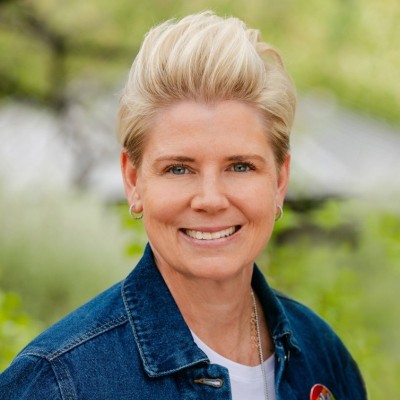How to recognize and address LGBTQ+ loneliness
While loneliness impacts people of all ages and groups, it’s, unfortunately, something that the LGBTQIA+ community is especially familiar with. Cindy Jordan shares some tips on how to deal with this silent health crisis.
As a gay teenager growing up in the 1980s, I dealt with intense loneliness which any closeted person can relate to (and the situation was not easy to overcome even after coming out).
Moreover, loneliness impacts nearly half (49%) of the community over the age of 65, compared to 35% of non-LGBTQIA+ adults in the same age group. Meanwhile, LGBTQIA+ youth and young adults in general face serious social roadblocks, new hurdles in accessing gender-affirming care, and a troubling lack of access to mental healthcare.
The unfortunate truth is that our community often experiences a scarcity of social support and greater obstacles in addressing the need for personal connection. This situation tightens the grip of loneliness and leaves us at a higher risk of both mental and physical health complications. One of the more difficult facts is that LGBTQIA+ teens consider suicide and make suicide attempts at about twice the national rate for all adolescents.
People who are lonely feel helpless and lack meaningful connections with peers. When someone feels this way, it can be difficult to interact with anyone, much less ask for help. The feeling is so difficult to overcome because a person who is lonely experiences real changes in their brain chemistry. Loneliness re-wires the brain, putting the person in a perpetual state of fight, flight, or freeze. It can even cause a person to misread social cues and facial expressions, so even when a person close to them is trying to help, their brain chemistry makes it difficult for the individual to grab onto that lifeline. Layer in the fact that our community faces ever-increasing attacks on our well-being, it’s no surprise that we often experience heightened feelings of isolation. Now more than ever.
If you’ve ever experienced prolonged loneliness, you already know how powerless it can make you feel. But the true cost is even greater. Loneliness is a major risk factor for many serious health conditions causing overuse of painkillers and sleep medications, which can even lead to death.
Just last month, the surgeon general declared loneliness a public health crisis, citing impacts that can be as harmful to our health as smoking 15 cigarettes a day.
While it’s difficult to characterize the true monetary costs of loneliness, estimates suggest that Medicare alone absorbs some $7 billion for the treatment of conditions associated with it. In fact, missed work and lost jobs due to loneliness cost employers an estimated $154 billion per year. These are astronomical figures that don’t include the toll loneliness has on suicide rates in our community.

A ray of light
We understand that recognizing loneliness is a serious problem and fixing it are two very different things. When my wife and I founded Pyx Health, we knew it had to be a serious solution that really addressed the problem in a scalable, meaningful way. Witnessing our LGBTQIA daughter struggle with profound loneliness and eventually lose her battle, we know better than most, that loneliness festers in darkness, and if we can provide real connections and support to people who are struggling, it’s like bringing a ray of sunshine into their lives.
Our approach combines a highly-trained, compassionate care team with technology, including an empathetic chatbot and guided, science-based programming. The combination of tech and real humans ensures that anyone who needs support can get it at any time of the day, and we’ve seen it make a big difference in people’s lives. Pyx Health users report a 60% reduction in loneliness along with a reduction in anxiety, depression, and suicide attempts.
Pyx Health is available to Medicare and Medicaid members in 70+ U.S. markets, which means we’re able to reach a huge number of people and make a difference in their lives.

What you can do
If you are struggling with feelings of loneliness and it’s impacting your day-to-day life, it’s important to remember that you’re truly not alone.
Your first step should be to schedule a time to discuss how you’re feeling with your primary care doctor and understand the resources available. They may refer you to a mental health specialist or therapist, both of which can be hugely beneficial. You can call your health plan and see if they cover the Pyx Health benefit, or something similar.
When feelings of isolation and despair are heightened, there are scientifically proven habits that can help in both the short- and long term. Here are a few that our users put into practice that statistically reduce loneliness over time:
- The “Three Good Things” exercise has been around for decades, and that’s because it works. Studies have found that people who take the time to write down three good things that happen to them each day feel less depressed, less isolated, and more grateful.
- Writing a “gratitude letter” to the people who have helped you through a difficult time is also proven to elevate your mood and overall well-being. Gratitude journaling — which means writing down what you’re grateful for daily, even just for a few minutes — is another successful approach.
- If stress is a factor in your loneliness, try the 5-4-3-2-1 stress reduction technique — looking for five things you can see, four you can hear, three you can touch, two you can smell, and one you can taste, to focus less on the stress and be more mindful of the world around you.
I am proud to say that Pyx Health continues to change lives for LGBTQIA+ members every day and will work tirelessly to ensure the community gets the support they need. Always remember that if your loneliness is persistent and unwavering, seek out the mental healthcare resources available to you including the 988 National Suicide and Crisis Lifeline. Loneliness can be overcome, and a renewed sense of well-being is within reach.

About Cindy Jordan, CEO Pyx Health
After five years as a police officer in the Washington DC area, Cindy Jordan shifted her career to politics as a political fundraiser. She later moved West and worked as a lead strategist at a marketing agency where her primary account was Arizona’s largest physician practice and hospital group. It was during this time a new business venture – Medical Referral Source (MRS), a referral technology tool for physicians – was conceived and launched. MRS was acquired by The Advisory Board Company in 2013 and Cindy was hired as Managing Director. While there, she continued to grow MRS, now known as Crimson Medical Referrals.
After witnessing a family member’s mental health crisis, Cindy co-founded Pyx Health with Anne Jordan in 2018. As the company’s CEO, Cindy continues to fuel innovation and growth. Finding a near-perfect balance of technology and compassionate human intervention, she leads the organization on its mission to effectively address the health crisis of loneliness in the United States.
Follow Cindy Jordan on Twitter: @CindyKJordan, LinkedIn: Cindy Jordan. For more information, visit PyxHealth.com.






